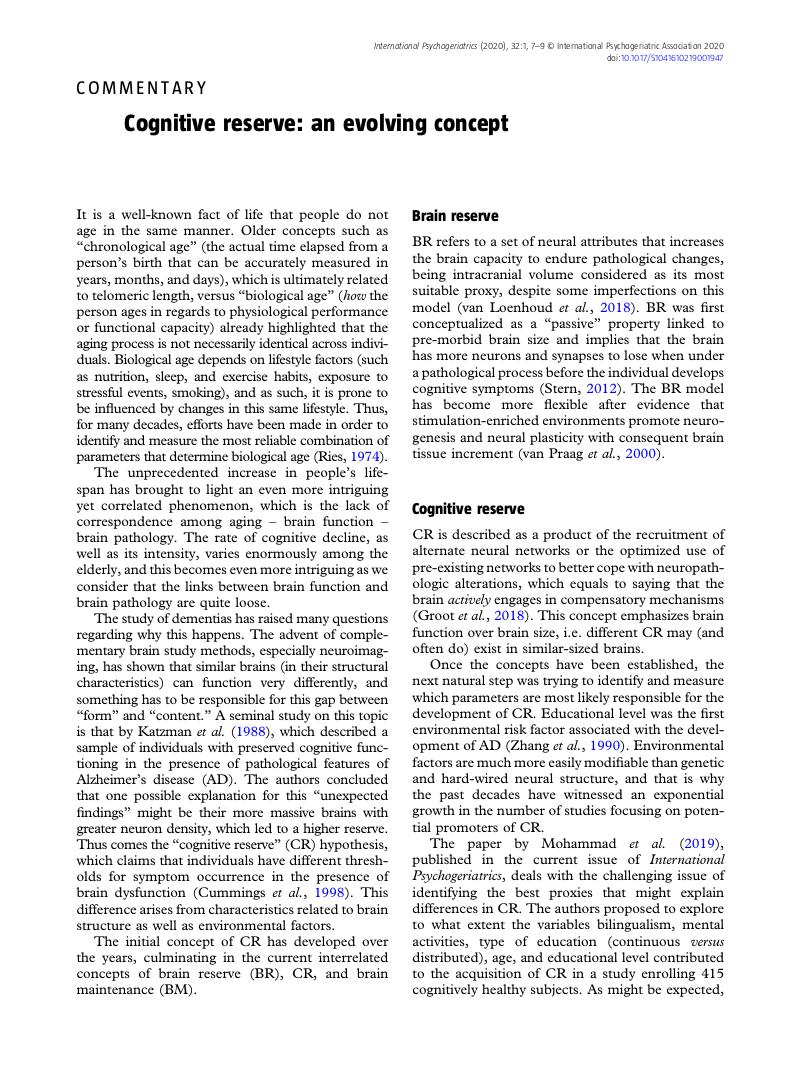Crossref Citations
This article has been cited by the following publications. This list is generated based on data provided by Crossref.
Martinčević, Marina
and
Vranić, Andrea
2023.
The higher, the better: Cognitive reserve contributes to lifestyle activities in older age.
Applied Neuropsychology: Adult,
Vol. 30,
Issue. 4,
p.
381.
García, Catherine
Garcia, Marc A.
Sheftel, Mara Getz
and
Adorno, De’Lisia S.
2023.
Older Mexicans and Latinos in the United States.
p.
119.
Brown, Lauren L.
and
García, Catherine
2023.
Identifying life course mechanisms and pathways that influence cognitive health among Asian and Latina/o/x older adults.
International Psychogeriatrics,
Vol. 35,
Issue. 1,
p.
3.
Gutiérrez-Cobo, María José
Cabello, Rosario
Megías-Robles, Alberto
Gómez-Leal, Raquel
Baron-Cohen, Simon
and
Fernández-Berrocal, Pablo
2023.
Does our cognitive empathy diminish with age? The moderator role of educational level.
International Psychogeriatrics,
Vol. 35,
Issue. 4,
p.
207.



